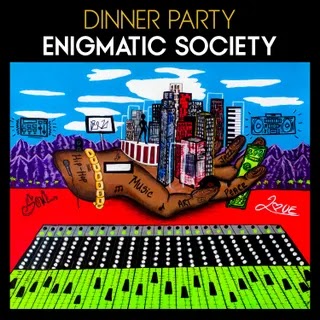Rooted in authenticity but still layered in artifice, the rising pop singer’s debut is ambitious yet shallow, seemingly intent on proving its own seriousness.
At 21, pop singer and TikTok star Madison Beer has spent an uncomfortable amount of her career navigating mini “scandals”—accusations that she copied Ariana Grande, that she lied about plastic surgery, that she romanticized Lolita. Beer signed to Island when she was 13, shortly after Justin Bieber tweeted one of her many YouTube covers, Etta James’ “At Last”; three years later, she split from the label, saying she felt “trapped” by the “Disney queen” image thrust upon her. The internet deals in absolutes, particularly for young women: She’s either fake or so raw it’s empowering; she’s rebelling against the patriarchy or bowing to it; she’s subversive or she’s derivative. Beer’s debut album is muddier. Life Support is rooted in authenticity but still layered in artifice, molded in the conventions of pop’s more unconventional players.
The comparison to Grande is clear from the intro, an elegiac run of harmonies ranging from breathy to belting. Beer borrows liberally—when she exhales “oh honey” over a heartbeat drum pattern and slow, strum-along guitar, it’s impossible to not think of Born to Die-era Lana Del Rey. “Good in Goodbye,” all maximalist sound effects hurled over a trap drum, is Demi Lovato by way of reputation. Beer’s biggest hit so far, “Baby,” is cobbled out of harps and glitter and a dense, writhing layer of synth-smeared vocals. It was originally called “Prescription Love,” she told NME, a song about “how it could be unhealthy to be dependent on love.” Instead, the final product sounds like every pop song about sex stitched together. “I can turn you on, on, on,” she wails through Auto-Tune.
Life Support is a concept album in the loosest sense. Beer has said the record explores her diagnosis with borderline personality disorder, sieved through the emotional arc of a breakup—a fascinating lens that rarely manifests in the music. Much of the album is spent confusing ceremony with cohesion: Beer seems so intent on proving that this is a big, serious record that she undercuts her more nuanced ideas. The production stays obvious and persistent. Mournful strings clobber sadness into your headphones. “Default” offers an elegant meditation on anxiety that gets lost in melodramatic gusts of violin; “Stay Numb and Carry On” fumbles a metaphor about cherry Alka-Seltzer to describe a panic attack—“Shake it up, and find some shelter to hide,” Beer says in a staccato pseudo-rap. “Follow the White Rabbit” buries a catchy beat in juddering bass and heady Alice in Wonderland imagery. Beer has an impressive voice, and when it’s freed from layers of effects it can convincingly convey fear and resignation, or glide into a gleaming harmony. On “Homesick,” the walloping production pauses, and Beer croons over just a guitar. It’s a reprieve, until she murmurs, “These ain’t my people, ain’t my crew, it ain’t my planet.” Soon after, a “Rick and Morty” sample belches in.
But even when Beer herself sounds lovely, her explorations of vulnerability and self-definition tangle in stiff, obvious metaphors. The writing relies on flimsy framing devices, shoehorning a delicate narrative about hiding and healing into simplistic slogans: the countdown chorus in “Emotional Bruises,” the color descriptions in “Blue,” the faux significance of spelling (“Ain’t no I in trouble/Just the U since we met”) in “Good in Goodbye.” Often her simplest lyrics carry the most weight. “Used to do these things so effortlessly, somehow,” she moans on “Effortlessly,” her vocals dragging and distorted. The beat pauses for a second, the wrenching want in her voice laid bare, as if the track itself is too mesmerized to continue. But then, with an almost tangible sigh, Madison Beer sings on.
















0 comments:
Post a Comment